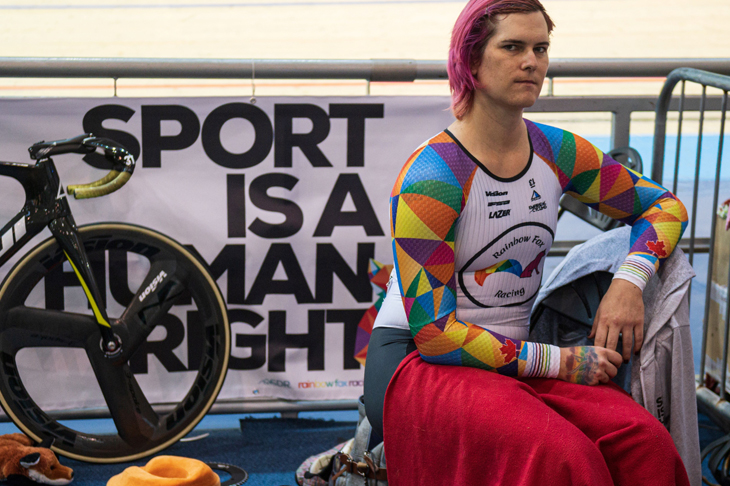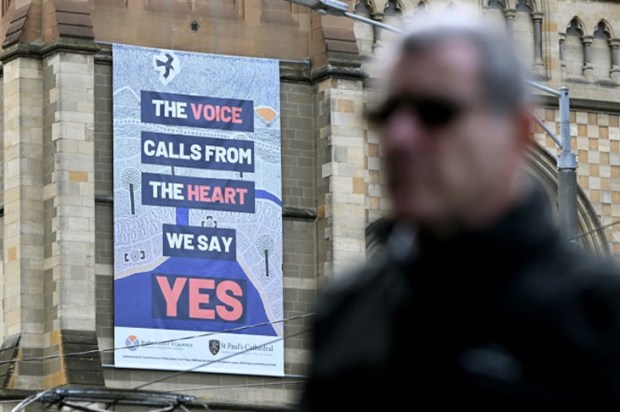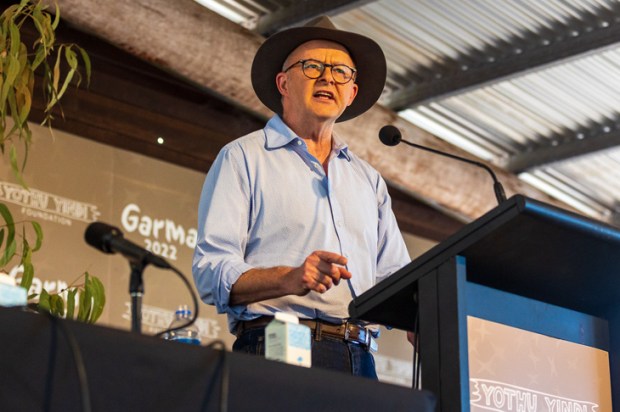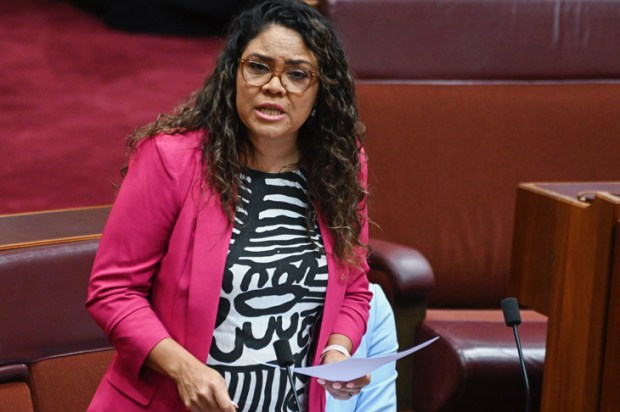18C on steroids
The idea that a sitting Tasmanian senator can be dragged before the state Anti-Discrimination Commissioner for her public comments shows the draconian reach of Australia’s speech restricting anti-discrimination laws. Claire Chandler, the Liberal Senator for Tasmania, revealed in federal parliament earlier this month that she had received a letter from the Anti-Discrimination Commissioner, Sarah Bolt, summoning the senator to attend a conciliation conference to answer for comments she had made in an article in the Mercury in July about—ironically enough—free speech in Australia.
In the article, Senator Chandler bemoaned the rise of cancel culture and the way it silences people for their views about sensitive topics like sex and gender identification and commented that ‘you don’t have to be a bigot to recognise the differences between the male and female sexes and understand why women’s sports, single-sex change rooms and toilets are important.’
A Tasmanian constituent emailed Chandler to ask whether the senator understood the difference between ‘sex’ and ‘gender’. In response, Chandler said ‘I do understand the difference. That is why I have made the point in the my article that women’s sports, women’s toilets and women’s changerooms are designed for people of the female sex and should remain that way.’
Chandler’s comments about gender identity and what this means for women-only facilities may not be shared by all Tasmanians, but they are undoubtedly shared by many; and those who share them deserve to have their views articulated by their representative in the Senate. That is not to say that only parliamentarians should have free speech, but one of the lessons from this is that if a representative of an entire state doesn’t have freedom of speech, then it spells a dangerous precedent for those they represent.
Under the Tasmanian anti-discrimination legislation it was open to the Anti-Discrimination Commissioner to reject the complaint for being frivolous or vexatious. A complaint about the comments of a member of parliament as a part of a social and political debate in a public forum is the very definition of frivolous – and yet the Commissioner has accepted the complaint in part, commenting that the Senator’s comments were ‘problematic’ and questioned whether people ‘should be subjected to material that is arguably offensive on the basis of gender identity and intersex variations of sex characteristics.’
Senator Chandler had even posed in the Mercury article that perhaps ‘an open letter signed by 150 writers and academics in defence of free speech offers a glimmer of hope that we can put a stop to the anti-democratic so-called cancel culture that has taken root’. That glimmer of hope has perhaps been extinguished by institutionalised cancel culture itself, namely the Anti-Discrimination Commissioner and her Equal Opportunity agency.
If there is a cancel culture hierarchy, then anti-discrimination commissions must occupy one of the most senior positions. Funded by taxpayers but completely independent of taxpayer accountability or control, these ‘independent’ agencies have free reign to take discrimination complaints and pursue those who express thoughts that are out of step with modern, cosmopolitan orthodoxy backed up by a progressive elite who prefer censorship to debate.
This attack on free speech is allowed because of the chillingly broad provisions of Tasmania’s anti-discrimination laws. Everybody is familiar by now with the federal hate speech laws under s. 18C of the Racial Discrimination Act which makes it unlawful for a person to offend or insult a person because of their race, colour, or ethnic or national origin. Section 18C is an unacceptable violation of freedom of speech, but the Tasmanian laws go even further. Section 17 of the Tasmanian Anti-Discrimination Act 1998 makes it unlawful for a person to engage in any conduct which offends, humiliates, insults, or ridicules another person because of one of 14 protected attributes they possess, including race, age, sex, sexual orientation and gender identity.
Curiously the Tasmanian Anti-Discrimination Commissioner rejected the complaint that related to the Mercury article, but accepted the part of the complaint that related to the correspondence about the article. But there is no firm rule about why the Commissioner would say the complaint about the Mercury article is lacking in substance when a former Commissioner accepted a complaint only a few years ago that was of a very similar substance. Back in September 2015 an anti-discrimination complaint was made by a Greens activist against the Catholic Archbishop of Hobart, Julian Porteous, for the publication of pamphlets which explained the church’s position on the definition of marriage. The complaint that the pamphlets were offensive on the basis of a person’s sexual orientation was received and investigated by the Commission. Then, as now, the content of the pamphlet was not directed towards the complainant but was considered to fall within the ambit of state anti-discrimination laws. The decision whether to accept or reject a complaint is at the discretion of the Commissioner, which leaves freedom of speech for Tasmanians in a precarious state.
To be clear at this stage a complaint has been made and the complaint may eventually be rejected or fail at a tribunal hearing. But the process is a part of the punishment under these kinds of laws. The threat of compulsory conferences or mediations and tribunal hearings, and the public tarring of being associated with alleged breaches of hate speech laws, is used to scare people from speaking freely. This is known as the law’s chilling effect on free speech.
And there is nothing more chilling than seeing even elected politicians or mainstream religious leaders hauled before anti-discrimination agencies. And that’s the point—the comments made were a part of a genuine public debate, which is why they attract these complaints. By silencing the loudest voices, anti-discrimination laws are being used to shape political debate itself. And as long as they are on the statute books, the message is clear: if they can get Senators and Archbishops, they can get you too.
Got something to add? Join the discussion and comment below.
Get 10 issues for just $10
Subscribe to The Spectator Australia today for the next 10 magazine issues, plus full online access, for just $10.
Morgan Begg is a Research Fellow with the Institute of Public Affairs
You might disagree with half of it, but you’ll enjoy reading all of it. Try your first month for free, then just $2 a week for the remainder of your first year.














Comments
Don't miss out
Join the conversation with other Spectator Australia readers. Subscribe to leave a comment.
SUBSCRIBEAlready a subscriber? Log in